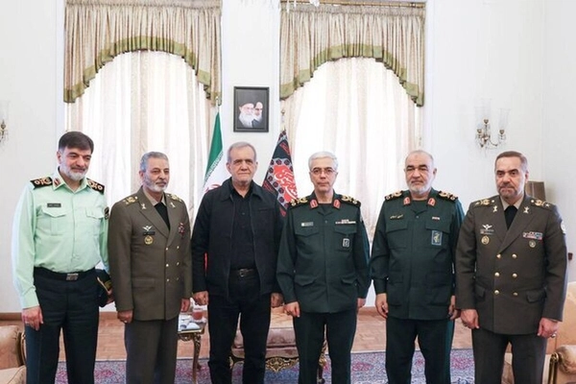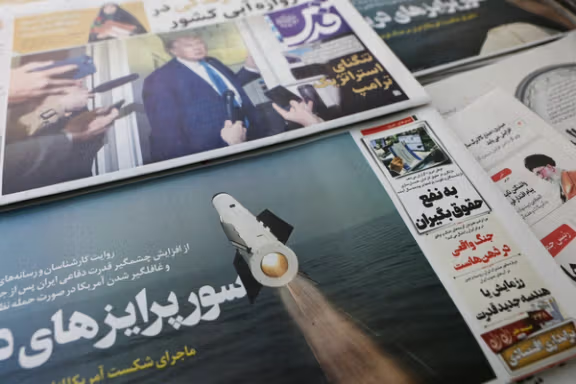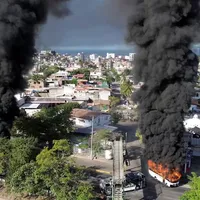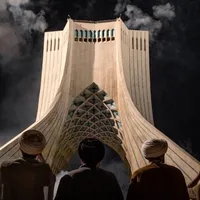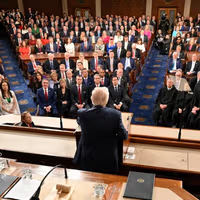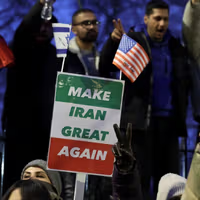The council’s formation was reported a day earlier by state media as part of what they called structural reforms to the Supreme National Security Council (SNSC).
Tasnim News, which is close to the Islamic Revolutionary Guards Corps, said the body is intended to oversee national defense policies and streamline military decision-making.
The Defense Council already existed in the Islamic Republic's Constitution and is now being revived decades after it was active during the early years of the Iran-Iraq war in the 1980s, Mansour Haghighatpour, a politician close to Ali Khamenei's advisor Ali Larijani, told Eghtesad News on Saturday.
Tasnim wrote that the formation of the Defense Council has taken place within the framework of Article 176 of the Constitution of the Islamic Republic, which allows the SNSC to establish “subsidiary councils such as the Defense Council and the National Security Council” in accordance with its responsibilities.
"The Council's objectives appear to be supporting the comprehensive strengthening of the country’s defense capabilities, as well as accelerating and improving the efficiency of decision-making in the defense sector," the Tasnim report said.
The council’s members will include the judiciary chief, parliament speaker, commanders of the IRGC and the army, the intelligence minister, the chief of the armed forces general staff, the commander of the Khatam al-Anbiya Headquarters, and two Supreme Leader representatives at the SNSC, it added.
Fars News, another outlet linked to the Revolutionary Guards, said Friday the Defense Council is part of a wider reconfiguration of Iran’s security apparatus.
“With structural reforms in the Supreme National Security Council finalized, informed sources report the establishment of a new body called the ‘Defense Council’ — a strategic council tasked with overseeing national defense policies, whose structure is expected to be finalized soon,” it wrote.
The same report said Larijani is expected to be appointed as the new SNSC secretary, replacing Ali Akbar Ahmadian.
Larijani, a conservative heavyweight and close advisor to Supreme Leader Ali Khamenei, would be tasked with “forward-driving and strategic missions that require overarching coordination and management,” according to Fars.
'Saving Islamic Republic from collapse'
The revival of the Defense Council is a positive development, Haghighatpour said on Saturday, adding that it would transform the General Staff of the Armed Forces into a coordinating body rather than a commanding one.
“If we face serious conflict and our forces are to enter the field—considering that the army and the Guards constitute a combined force, with two air forces, two ground forces, and two navies—all engaging together requires a central command,” he added.
“Command must have a designated deputy, ensuring we are not caught off guard at critical moments.”
The Tasnim report said that “given the new security challenges and the complexity of regional and global threats, the revival of the Defense Council could lead to greater agility and focus in the country’s defense decision-making.”
Iran International's senior analyst Morad Vaisi believes the formation of the Defense Council is not meant to defend the people or the country but "to defend the Islamic Republic and prevent its collapse.”
“The surprise in the 12-day war has shaken Khamenei’s confidence in the military commanders, and he is now seeking to build more institutions above the IRGC, army, and the General Staff of the Armed Forces," Vaisi said.
During the conflict with Iran in June, Israel's air force took control of Iranian airspace, delivering a significant blow to the country's air defenses, while Iran's armed forces responded with successive waves of missile and drone attacks on Israeli territory.
Israeli military officials say that 120 air defense systems were destroyed or disabled since the first wave of attacks—around a third of Iran’s pre-war total. Long-range systems, including Russian-supplied S-300s and Iran’s Bavar-373 batteries, were among those targeted.





